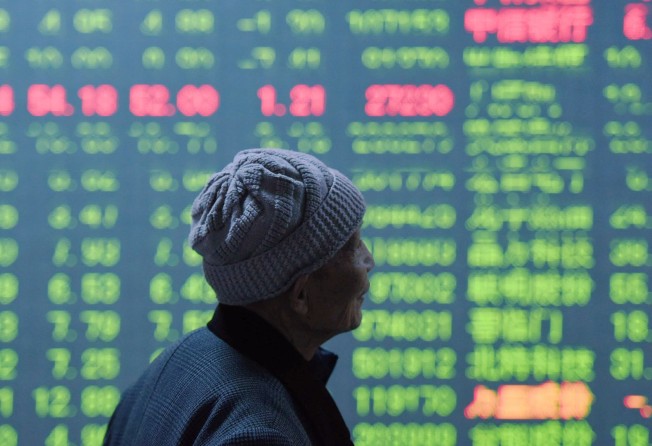Why won’t Hong Kong stock exchange trumpet its advantages over mainland China bourses?
Arbitrary actions of mainland securities authorities hardly came as a blinding revelation

Did you hear the great news for the Hong Kong stock market last week? No? You certainly did not hear it from the fine folk who run the local stock exchange after they were afflicted by an outbreak of coyness.
Usually people who run markets can’t wait to extol their competitive advantages. So why are the Hong Kong stock exchange leaders seemingly reluctant to even mention the turmoil in mainland markets or the cack-handed way that this turmoil was handled?
Maybe political pressures explain this silence but events over the border provide excellent news for Hong Kong where trading remained unhindered as mainland markets closed. Added to this the local bourse has a record of selling the cream of the crop of Chinese equities at a healthy discount to prices in Shenzhen and Shanghai.
It is true that access to Hong Kong’s market is problematic for the mass of private Chinese investors who trade shares on the mainland but it is quite a different story for the big international institutional investors who remain interested in Chinese equities.
In case any of them missed the point, it was rammed home with a vengeance that the safest and cheapest place to trade these equities is in Hong Kong. Moreover Hong Kong transactions are conducted in a freely traded currency and our market offers the full array of hedging instruments, now banned across the border.
Admittedly the arbitrary actions of mainland securities authorities hardly came as a blinding revelation but a new level was reached following the failure of a predictably dubious circuit breaker device designed to close the market in the wake of a 5 per cent fall and suspend trade for an entire day following a 7 per cent decline. Last week’s abrupt market closure forced a policy reversal within the space of four days. To avoid doubt as to whether the word of the market regulators could be trusted they also chose last week to announce that they were going back on a promise to allow larger shareholders to resume trading after the planned termination of the six-month disposal freeze prompted by sharp price plunges last summer.
Meanwhile other mainland regulators seemed reluctant to be left out of the scramble to add uncertainty in China’s investment markets. The foreign exchange regulator not only issued instructions to banks to curb US dollar purchases to thwart an outflow of capital but also decided that this decision needed to be shrouded in secrecy. However news soon leaked out, as it was bound to do and it was followed by heavy state intervention in the currency market.
This is something of a double whammy because Beijing’’s avowed aim is to move towards a fully convertible currency. While all this is going on there seems to be a less than firm hand on the tiller as the policymakers in Beijing veer from brave talk about maintaining the value of the yuan, while on the other hand enacting a steady series of devaluations.
Hong Kong has long served as the international financial community’s preferred place to conduct Chinese investment transactions. However the message coming out of the stock exchange is that Hong Kong’s priority is to be more closely integrated with mainland markets. This has given risen to the stock market connect scheme, and will shortly be seen in the scheme to integrate trading of mutual funds.
No one argues with the principle of market integration but, as matters stand, and excuse me if I put this too bluntly, we are talking about closer integration between a well run stock market and an unpredictable, more expensive market, routinely subject to arbitrary policy changes and other forms of intervention by the state.
Yet the Hong Kong authorities insist that existing integration measures are just a beginning, they seem to think that more is better.
While all this is going on, Hong Kong’s stock market has scandalously taken its eye off the ball in re-establishing itself as a truly international market. When, for example, did you last hear of a new listing on the local bourse that came from anywhere outside the mainland?
Then there’s the bond market where there is also much talk of integration with the mainland. Meanwhile practically all of the international action in bonds in Asia has moved to and is staying in Singapore.
The worry is that Hong Kong’s well established and well regulated markets will increasingly be seen by the international community as a junior cousin of the mainland markets. The people who run the local market dare not even mention their comparative advantages.
This all begs the more fundamental question of international investor’s appetite for Chinese investments. Of course the Chinese markets will bounce back but will they become more insular and more dependent on local investment?
Stephen Vines runs companies in the food sector and moonlights as a journalist and a broadcaster